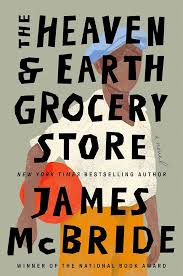Chapter 7: A New Problem
byChapter 7: A New Problem had begun quietly, but Moshe soon realized that a simple favor could bring unexpected consequences. After Malachi’s abrupt departure, Moshe was still grappling with mixed emotions—gratitude for Malachi’s past help, but frustration at his refusal to adapt. Moshe believed America offered more order and opportunity than the old world, yet Malachi’s parting words unsettled him, especially those about identity. His statement that “Negroes have the advantage” echoed uncomfortably in Moshe’s thoughts. That idea challenged Moshe’s belief in assimilation and progress. Though Moshe thought he had moved beyond the ways of the old country, the conversation left a mark.
As Moshe focused on tasks inside the theater, he noticed Nate’s nephew—Dodo, a quiet boy with a hearing impairment—sweeping the floor nearby. When Nate explained the child’s background, Moshe listened patiently. The boy had suffered a household accident that left him partially deaf, but he wasn’t feebleminded. Nate and Addie had taken him in after Thelma, Dodo’s mother, passed away. Now, someone from the state wanted to take Dodo to a “special” institution. Nate didn’t trust the system and asked Moshe to let the boy stay at the theater for a few nights. Moshe hesitated, fearing involvement with the state, but ultimately agreed—partly out of loyalty, and partly because of Addie’s unwavering devotion to Chona during her illness.
The decision to hide Dodo brought back Moshe’s memories of Chona’s defiance. She had always been bold—whether it was confronting racism, dragging barrels of water to the mikvah by herself, or speaking her mind when others feared consequences. Unlike Moshe, who feared government authority, Chona challenged it. He remembered how she had forced the town to reckon with discrimination, even at the cost of alienating their synagogue. That memory fueled his resolve. He allowed Dodo to stay, knowing that Chona’s response would likely not be kind but also not surprised. In many ways, she was the moral compass Moshe couldn’t ignore, a reminder that right and wrong were not always dictated by comfort.
Chona’s reaction, as expected, was fierce. When Moshe told her that Dodo was sleeping in the theater basement, she didn’t mince words. The boy deserved warmth, safety, and dignity—not isolation with rats and coal fires. Her words, especially when spoken in Yiddish, carried a sting that Moshe had come to understand as deep disapproval. Still, he felt he had done what he could. The idea of state interference in Dodo’s life troubled him, not just as a legal issue, but as a moral one. Moshe was starting to recognize that in America, progress wasn’t always measured by documents and property—it was also measured by how one treated the vulnerable. The dilemma made him reconsider what kind of country he truly wanted to believe in.
Adding factual context, it’s important to note that during the 1940s and 1950s, children with disabilities—especially from marginalized communities—were often institutionalized in places like Pennhurst State School. Conditions in such facilities were notoriously harsh, with reports of neglect, abuse, and severe overcrowding. This history highlights why families like Nate’s were desperate to avoid state involvement. Dodo’s story reflects a broader struggle: the fight for humane treatment in a system that routinely dismissed the humanity of the poor and disabled. It also mirrors the tension felt by many immigrant and minority families trying to protect their own under the gaze of a bureaucratic system that neither understood nor cared about individual circumstances. Moshe, an immigrant himself, was finally facing the ethical cost of staying silent or playing by the rules.
The choice to shelter Dodo, though small, marked a quiet act of resistance. It symbolized a shared thread between the Jewish and Black communities of Chicken Hill: survival through solidarity. Whether it was standing against the exclusion at a local tennis club or defying a state’s demand to institutionalize a boy, these decisions reflected courage. Moshe’s hesitation was rooted in fear of authority, but his final decision aligned him, perhaps unknowingly, with the legacy of resistance that Chona had embodied for years. As the night settled in and Dodo rested in the quiet of the theater, warmed by a fire and shielded from the state’s gaze, a new awareness began to settle over Moshe. He had made a decision not just for the boy, but for the kind of man he wanted to be in this adopted land.


